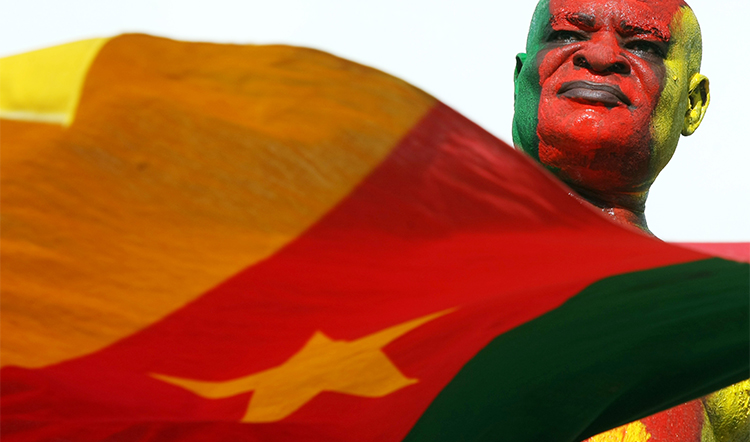
Journalists Not Terrorists: In Cameroon, anti-terror legislation is used to silence critics and suppress dissent
In 2014, Cameroon enacted a broad anti-terror law as part of its effort to counter the extremist group Boko Haram, but authorities are using it to arrest and threaten local journalists who report on the militants or unrest in the country’s English-speaking regions. A presidential decree in August 2017 ended legal proceedings against at least…

Journalists Not Terrorists
In Cameroon, anti-terror legislation is used to silence critics and suppress dissent A light breakfast of an omelet and a cup of black coffee eaten on the trot: Little did Radio France Internationale correspondent Ahmed Abba know it would be his last meal as a free man. Abba had a 10 a.m. assignment on July…

Cameroon releases three journalists jailed under anti-terror law
New York, September 1, 2017–The office of President Paul Biya announced August 30 that Cameroon is ending criminal proceedings against those detained during unrest in the country’s two English-speaking regions. Atia Tilarious Azohnwi, political editor of The Sun, Tim Finnian, editor of Life Time magazine, and Hans Achomba, a freelance documentary filmmaker, are among those…

Cameroon arrests journalists on terror charges
Police arrested Atia Tilarious Azohnwi, the political editor of The Sun, and Amos Fofung, a bureau chief at The Guardian Post, on February 9, 2017, in Buea, the capital of Cameroon’s English-speaking Southwest region, according to media reports. Their arrest came a few hours after police detained a third Cameroonian, Mofor Ndong, for allegedly planning…
Life Time editor detained without trial on terror charges in Cameroon
Authorities arrested Tim Finnian, editor of the weekly Cameroonian newspaper, Life Time, on January 26, 2017, over a report that he published alleging that two English-speaking youths had died in police custody, according to a journalist familiar with the case and reports.
